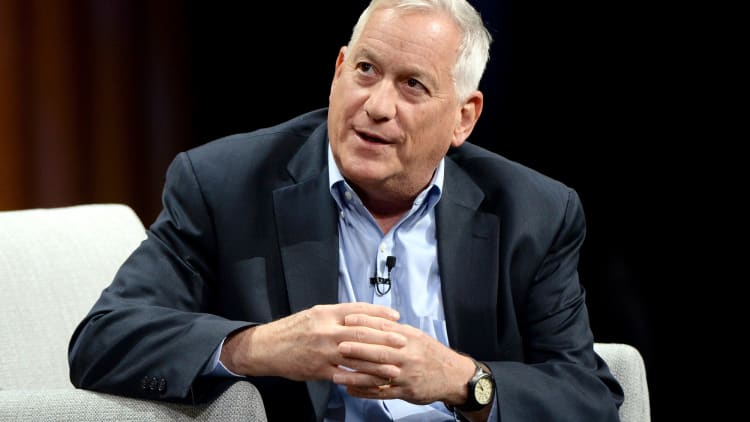China said Friday its economy grew by 6% in the third quarter from a year earlier. It's believed to be China's slowest GDP gain in at least 27½ years.
Analysts polled by Reuters had expected China's gross national product to grow 6.1% from the third quarter of 2018.
In the second quarter of 2019, China's statistics bureau said the economy grew 6.2% from a year earlier, as the country's trade war with the U.S. took its toll.
China's GDP has fallen sharply since the first quarter of 2018, when it gained 6.8% due to credit tightening and the country's trade dispute with the U.S., said Vishnu Varathan, head of economics and strategy for the Asia and Oceania Treasury Department at Mizuho Bank.
"There is no doubt that the downturn is serious," Varathan added in a note sent Friday before China released the GDP report.

Beijing's official growth target for 2019 is 6% to 6.5%.
The third-quarter growth was the slowest since the first quarter of 1992, the earliest quarterly data on record, Reuters said.
China's economy is likely to slow further, say experts
Economists are pessimistic about the immediate outlook for China even though there were some bright spots in the September data released on Friday, with retail sales up 7.8% from a year ago and industrial output rising 5.8%. Fixed asset investment rose 5.4% from January to September.
"Despite a stronger September, pressure on economic activity should intensify in the coming months," said Julian Evans-Pritchard, senior China economist at Capital Economics.
"Cooling global demand will continue to weigh on exports, fiscal constraints mean that infrastructure spending will wane in the near-term and the recent boom in property construction looks set to unwind," he added in a note.
China's growth is likely to continue to slow in the next two quarters, said Bo Zhuang, chief China economist at TS Lombard.
That comes as real output growth in services has slowed aggressively in the last few months, Zhuang told CNBC's "Street Signs."
Zhuang expects China's growth to slow to 5.8% in the fourth quarter, with the country's full-year growth target to be 6.1%.
"Given the trade talks and the conflict with the U.S., Chinese authorities are accepting lower growth rate," said Zhuang.
Although Beijing's official GDP figures are tracked as an indicator of the health of the world's second-largest economy, many outside experts have long expressed skepticism about the veracity of China's reports.
Recent data out of China has not been upbeat and analysts including Evans-Pritchard and Zhuang expect economic stimulus measures to be rolled out soon.
China's import and export data for September came in worse than expected amid the country's trade friction with the U.S.
The two economic giants have been embroiled in a trade war for more than a year, with each country applying tariffs on billions of dollars worth of goods from the other.
The latest round of trade talks between the world's two largest economies ended late last week in Washington. After the meeting, the U.S. said it would suspend a tariff increase on Chinese goods that were supposed to have taken effect on Tuesday.
U.S. President Donald Trump said China agreed to a "very substantial phase one deal" that will be written over the next three weeks. Trump also said the deal would address intellectual property and financial services concerns, as well as Chinese purchases of about $40 billion to $50 billion U.S. agricultural products.
— CNBC's Evelyn Cheng contributed to this report.
Correction: An earlier version misstated when analyst Varathan's note was sent. It was Friday.

